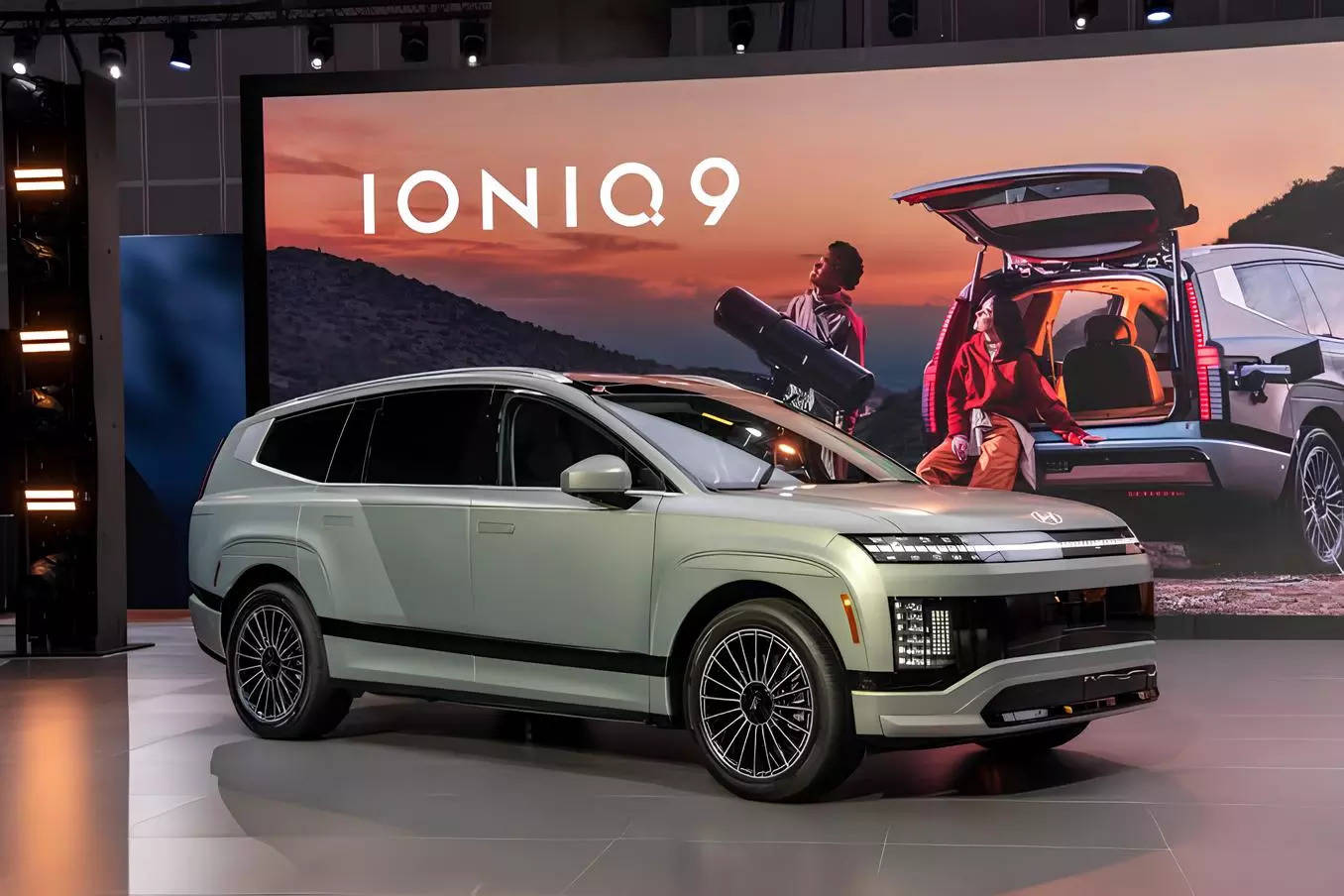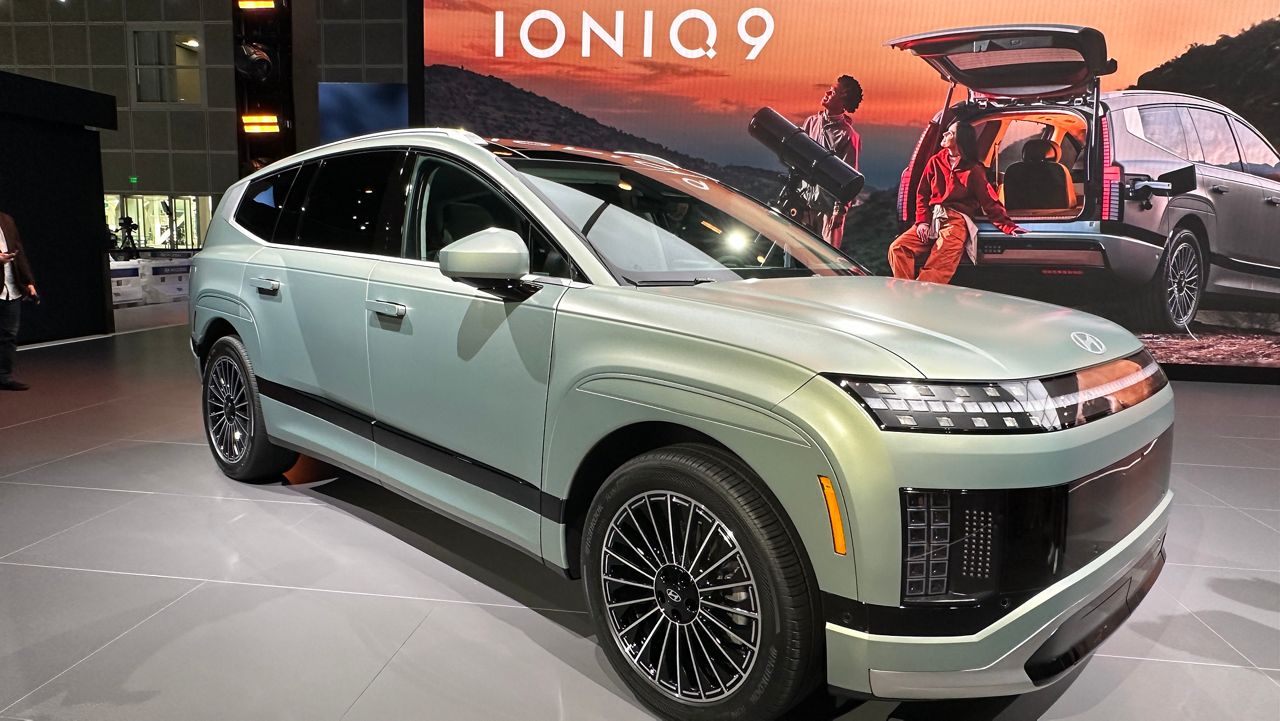South Korean automaker Hyundai is boldly announcing a $21 billion investment in the US. The plan includes a $5.8 billion steel plant in Louisiana, an expansion of vehicle production, and significant investments in artificial intelligence (AI) and autonomous driving.
The announcement comes just days before former President Donald Trump is expected to introduce new tariffs on vehicle imports. While Hyundai’s move could create thousands of jobs, it raises questions: Is this a proactive strategy to protect its business from tariffs or a genuine commitment to long-term US growth?

Hyundai’s Existing US Presence
Hyundai has been manufacturing in the US for years. The company operates a vehicle plant in Alabama, while its affiliate, Kia, has a facility in Georgia. Hyundai’s US production already plays a significant role in the country’s auto industry.
Why Now? The Looming Tariff Threat
Trump has signaled that he will impose new import tariffs, potentially targeting countries like South Korea, which has a significant trade surplus with the US. In recent weeks, Trump introduced a 25% import tax on steel and aluminum, extending it to hundreds of metal products.
For Hyundai, a company that imports vehicles and parts from South Korea, such tariffs could pose a significant financial burden. By expanding US production and investing in American steel, Hyundai could reduce its reliance on imports, potentially avoiding heavy tariffs.

Breaking Down Hyundai’s $21B Investment
A New $5.8 Billion Steel Plant
- Location: Louisiana
- Expected output: 2.7 million metric tons of steel annually
- Jobs created: 1,400+
- Purpose: Supply Hyundai’s Alabama and Georgia plants with domestically produced steel, reducing dependency on South Korean imports
$9 Billion to Boost US Vehicle Production
- Goal: Increase US vehicle output to 1.2 million cars per year by 2028
- Expansion of Alabama and Georgia facilities
- Strengthening supply chains to make US production more cost-efficient
$6 Billion Investment in AI and Autonomous Vehicles
- Partnerships with US technology firms
- Development of self-driving technology and robotics
- Positioning Hyundai as a leader in next-generation automotive technology
A New $7.59 Billion EV and Battery Factory
- Located in Georgia
- Strengthening Hyundai’s foothold in the electric vehicle (EV) market
- Aligning with US policies supporting domestic EV production
$3 Billion LNG Purchase Commitment
- Hyundai will buy $3 billion worth of liquefied natural gas (LNG) from US suppliers.
- Strengthening ties with American energy companies

A Smart Strategy or Political Necessity?
How Hyundai Benefits
- Tariff Shielding: By expanding production and sourcing materials in the US, Hyundai minimizes the impact of potential import taxes.
- Job Creation & Political Leverage: The investment creates thousands of American jobs and potentially earns goodwill from US policymakers.
- Electric Vehicle Leadership: As US demand for EVs grows, Hyundai is positioning itself as a key player in the American market.
Challenges Ahead
- Uncertain Tariff Landscape: Even with expansion, Hyundai may face regulatory hurdles depending on future US trade policies.
- Economic Viability: The success of these investments depends on consumer demand, supply chain efficiency, and the evolving EV market.
- Competition with US Carmakers: General Motors and Ford have been lobbying for tariff exemptions, so Hyundai must navigate a competitive environment.
Hyundai’s $21 billion investment in the US is more than just an expansion—it’s a calculated move to navigate the complexities of international trade and evolving market dynamics. While it brings jobs, innovation, and economic growth, the timing raises questions about whether this is a proactive business strategy or a response to tariff pressures.
Will Hyundai’s move give it a long-term advantage in the US market, or will shifting political winds alter the outcome? The next few months will reveal whether this investment secures Hyundai’s place in America or is simply a defensive play against looming trade barriers.
What’s Next?
Would you like to:
✅ Get More Insights? Subscribe to our newsletter for expert analysis.
✅ Discuss? Share your thoughts in the comments.
✅ Read More? Check out our latest reports on global auto trends.
















